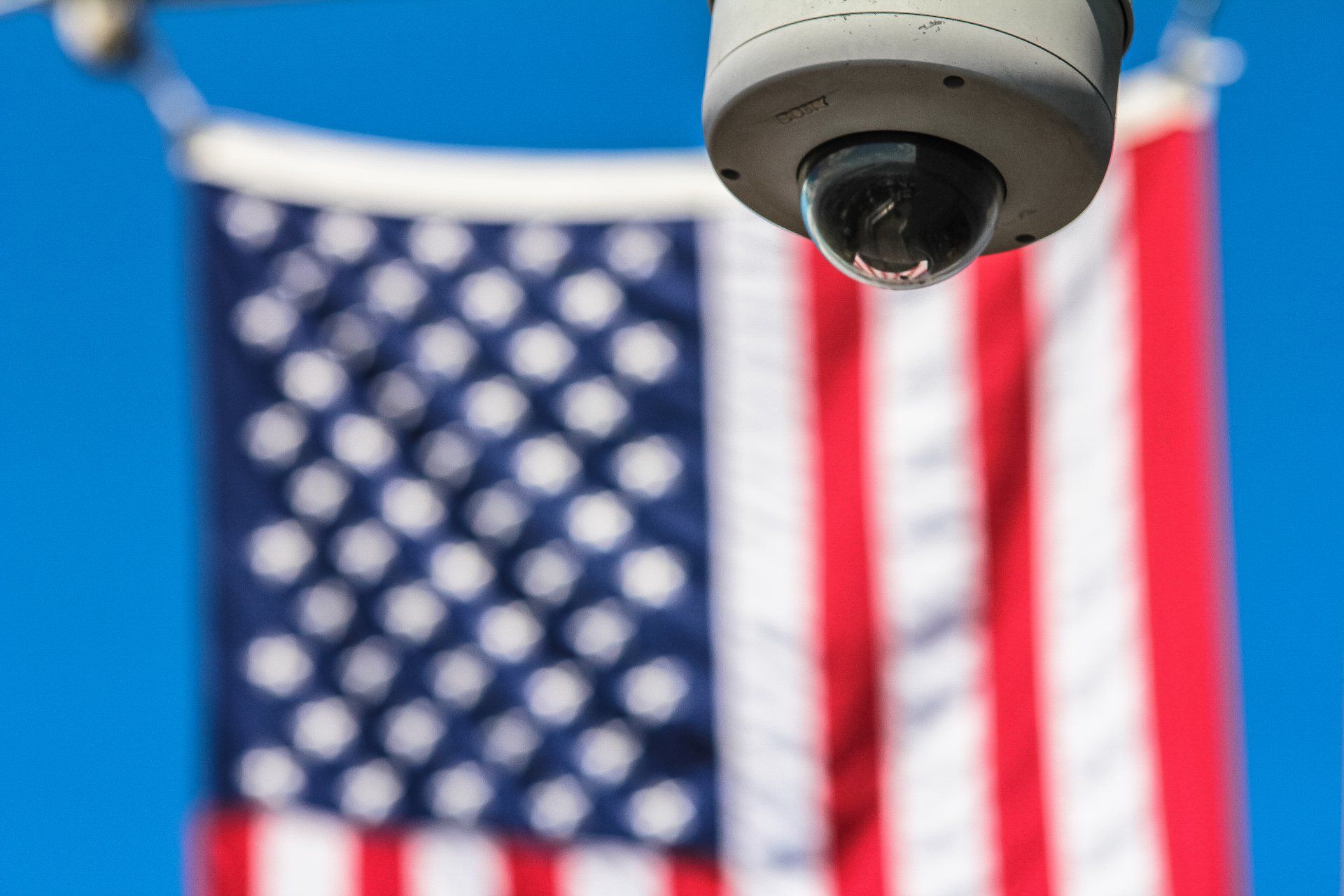Contact Us
objective-wire.org
fisa reauthorization bill 2024 | statement from national security advisor jake sullivan on the senate's vote on the reauthorization and reform of fisa section 702 | h.r.6611 - fisa reform and reauthor
Introduction To The Fisa Reauthorization Bill 2024: Overview And Key Objectives
- FISA was enacted in 1978 to impose limits on domestic national security surveillance
- FISA created the FISC to authorize national security electronic surveillance on foreign powers or agents
- Section 702 of FISA, added in 2008, targets non-U.S. persons outside the U.S. for surveillance
- Section 702 allows the government to compel communication service providers to assist in acquiring targets' communications
- Section 702 has a sunset provision and recently received a brief extension until 2024
- Reauthorization of Section 702 in RISAA extends the sunset for two years
- RISAA also requires new certifications to be obtained within 90 days of enactment
- Query procedures under Section 702 allow the government to search collected information using U.S. person identifiers with oversight requirements
- Views on U.S. person queries vary, with some seeing them as backdoor searches without a warrant
- Different bills in the reauthorization cycle approached the issue of U.S. person queries differently
The Struggle Between Privacy Advocates and National Security DEMAGOGS Over FISA Surveillance Law
The FISA Reauthorization Bill of 2024, formally known as H.R.6611 - FISA Reform and Reauthorization Act of 2023, marks a pivotal chapter in the ongoing evolution of national security measures within the United States. At its core, the bill seeks to address and recalibrate the balance between safeguarding civil liberties and ensuring the robust protection of national security. The legislation comes at a critical juncture, following intense scrutiny and debate over previous iterations of the Foreign Intelligence Surveillance Act (FISA), particularly Section 702, which authorizes the collection of foreign intelligence information.
National Security Advisor Jake Sullivan's statement on the Senate's vote underscores the administration's commitment to these dual imperatives: defending against foreign adversaries' evolving threats while upholding democratic values that cherish individual privacy and civil liberties. The reauthorization bill embodies a nuanced approach towards achieving these goals by introducing reforms intended to enhance accountability among intelligence agencies without compromising their capability to perform critical national security functions.
Biden Signs FISA Reauthorization bill continuing surveillance on both foreign threats and American Citizens
Background: Understanding Fisa Section 702 And Its Significance In National Security
The Foreign Intelligence Surveillance Act (FISA) Section 702, since its inception, has stood as a cornerstone of the United States' national security apparatus. This provision, distinct within the broader scope of FISA, is specifically designed to authorize the collection of foreign intelligence information from non-U.S. persons located outside the United States. Its significance in bolstering national security and counterterrorism efforts cannot be overstated; Section 702 facilitates the acquisition of crucial intelligence on foreign threats without necessitating an individual court order for each target.
This mechanism operates under a robust framework that includes oversight by both the executive branch and Congress, alongside stringent compliance reviews by the Foreign Intelligence Surveillance Court (FISC). The primary objective is to ensure that the collection activities strictly adhere to U.S. law and respect individuals' privacy rights, balancing national security needs with civil liberties.
Since its enactment, Section 702 has been pivotal in disrupting terror plots and identifying espionage activities. It has enabled U.S. intelligence agencies to uncover sophisticated cyber threats and counterintelligence information critical to national defense. Moreover, it provides vital insights into foreign intentions and capabilities across a spectrum of concerns including nuclear proliferation and transnational terrorism.
However, despite its invaluable contributions to national security, Section 702 has also been a subject of controversy and debate concerning privacy rights and potential overreach by intelligence agencies. Critics argue that while aimed at foreign targets, the incidental collection of communications involving U.S. citizens raises significant privacy issues.
JAKE SULLIVAN the
National Security Advisor Shares his thoughts on Fisa Reauthorization
National Security Advisor Jake Sullivan issued a statement following this pivotal vote, highlighting its importance and implications.
"We applaud the Senate’s passage of H.R. 7888, the Reforming Intelligence and Securing America Act. This legislation, which passed the House last week and the Senate tonight with broad bipartisan support, will renew and reform Section 702 of the Foreign Intelligence Surveillance Act (FISA) – one of the United States’ most vital intelligence collection tools. The Reforming Intelligence and Securing America Act will retain essential authority to understand and protect against a wide range of dangerous threats to Americans while enhancing safeguards for privacy and civil liberties through the most robust set of reforms ever included in legislation to reauthorize Section 702.
The President will swiftly sign the bill into law, ensuring that our security professionals can continue to rely on Section 702 to detect grave national security threats and use that understanding to protect the United States." source
Sullivan pointed out that these reforms were carefully crafted in response to public concerns about privacy and civil liberties. The legislation includes measures designed to strengthen oversight and restrict the use of collected data, thereby addressing some of the most critical issues raised by privacy advocates.
did senate vote fisa into law ?
Senate's Decision On Fisa Section 702:
Yes.
The Senate decided on the reauthorization and reform of the Foreign Intelligence Surveillance Act (FISA) Section 702, a key part of the FISA Reform and Reauthorization Act of 2023.
This decision is crucial in balancing privacy rights with national security needs.
= The result shows that the Senate believes in the need for surveillance operations as tools of national security.
The bipartisan* support reveals that all political parties understand the crucial role of gathering foreign intelligence.
The decision comes after careful considerations between ensuring national security and respecting individual privacy rights.
- Reconfirming the US' commitment to strong intelligence capabilities;
- Ensuring increased transparency and accountability in surveillance practices;
- Introducing reforms to enhance safeguards against misuse of collected data.
: These changes demonstrate intent to synchronize security measures with democratic values.
Ultimately, the Senate did vote FISA into law, a move indicating a significant shift in the ongoing discourse around liberty and security.
The Senate's decision on the reauthorization and reform of the Foreign Intelligence Surveillance Act (FISA) Section 702, encapsulated within H.R.6611 - FISA Reform and Reauthorization Act of 2023, marks a pivotal moment in the ongoing debate over privacy rights and national security imperatives. The vote outcome not only signifies a legislative consensus on the necessity of surveillance operations in safeguarding national interests but also underscores the evolving stance of lawmakers regarding oversight and civil liberties protections.
The implications of this legislative's move are multifaceted.
Privacy Concerns Vs. National Security Needs: Balancing The Scales In Fisa Reauthorization
One of the cornerstone effects of this new legislation is its emphasis on enhancing oversight and accountability within surveillance practices. By introducing more stringent checks and balances, the Act aims to ensure that the government's surveillance activities are conducted with greater transparency and respect for civil liberties. This shift is expected to rebuild public trust in national security agencies, which has been eroded by past controversies over privacy infringements.
Moreover, the reform embedded within H.R.6611 reflects a nuanced understanding of technology's evolving role in both everyday life and in the spheres of international relations and security threats. The legislation's modernized guidelines for data collection acknowledge these changes, setting a precedent for adaptive regulation that keeps pace with technological advancements. Consequently, U.S. intelligence operations are likely to become more effective by leveraging updated methods for gathering information while adhering to legal frameworks designed to protect individual rights.
In essence, FISA heralds a new era for U.S. surveillance operations—a transition towards more accountable and technologically adept practices that aim to safeguard national security without compromising on democratic values or human rights.
Moving into a more technologically based society: Road Ahead For Fisa Section 702
Moreover, technological advancements continue to reshape the landscape of global communications and data flows, presenting both opportunities and challenges for intelligence gathering under Section 702. Adapting to these changes while maintaining strict compliance with legal frameworks will be essential for ensuring that FISA remains an effective tool in addressing evolving threats without compromising democratic principles.
The path forward demands vigilance, adaptability, and an unwavering commitment to preserving freedoms even as we confront complex threats in an ever-changing world.
Fisa court grants extension of licence for bulk collection of US phone records: Reauthorisation is fifth since... http://t.co/pjBEWTxWjx
— Mr Eniola (@mroieniola) June 21, 2014


share this
STAY UP TO DATE
GET Objective LATEST
Receive Objective Media Updates, and get a heads up on the reality we love.
Contact Us



